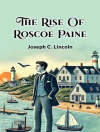In ‘Zanoni, ‘ Edward Bulwer-Lytton intertwines the realms of mysticism and romance, delivering a narrative dense with philosophical inquiry and esoteric themes. Set against the backdrop of 18th-century Europe, the novel follows the eternal Rosicrucian, Zanoni, exploring the tension between personal enlightenment and societal constraints. Lytton’s prose blends poetic elegance with the Gothic tradition, crafting a work that critiques materialism and celebrates the transcendent power of the human spirit. The intricate structure and rich symbolism invite readers to engage deeply with the metaphysical questions surrounding love, sacrifice, and immortality, positioning this work within the annals of Romantic literature and the occult revival of the period. Edward Bulwer-Lytton, a luminary of Victorian literature, was heavily influenced by the intellectual currents of his time, including Romanticism and early theosophy. His fascination with the occult and philosophical dialogue is mirrored in his diverse body of work. Through personal struggles and an active engagement in the intellectual debates of his era, Lytton harnessed his insights into human nature, ultimately shaping the profound themes presented in ‘Zanoni.’ I highly recommend ‘Zanoni’ to readers who seek a blend of thrilling narrative and rich philosophical exploration. This exquisite novel not only captivates with its intricate plot and vivid imagery but also encourages reflection on the deeper mysteries of existence, making it a timeless study of both romantic and mystical human experience.
Про автора
Edward Bulwer-Lytton (1803–1873), an English novelist, poet, playwright, and politician, has long been recognized for his contribution to the canon of English literature as well as his influence on popular culture. Notably, Bulwer-Lytton was a prolific writer whose varied literary styles encompassed the gothic and science fiction genres, among others. He is perhaps best known for the phrases ‘It was a dark and stormy night’ from ‘Paul Clifford’ and ‘the pen is mightier than the sword’ from ‘Richelieu; Or the Conspiracy’. Nonetheless, his extensive bibliography includes major works that delve into themes of mysticism and philosophical speculations. ‘Zanoni’, published in 1842, is one such book where Bulwer-Lytton explores the realms of Rosicrucianism and the occult through a narrative that intertwines the immortal ‘Zanoni’ with historical events like the French Revolution. The book is reflective of Bulwer-Lytton’s own interest in esoteric and spiritual ideas, making it more than just a literary piece; it is also a testament to the author’s profound intellectual engagement with the arcane. Bulwer-Lytton’s literary style is marked by elaborate and florid language, which, while often critiqued, also serves to create a dense atmosphere within his narratives, which was admired in his era.












